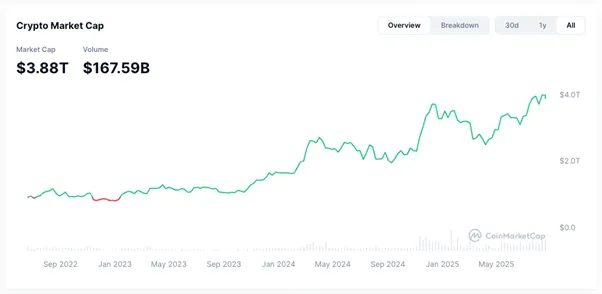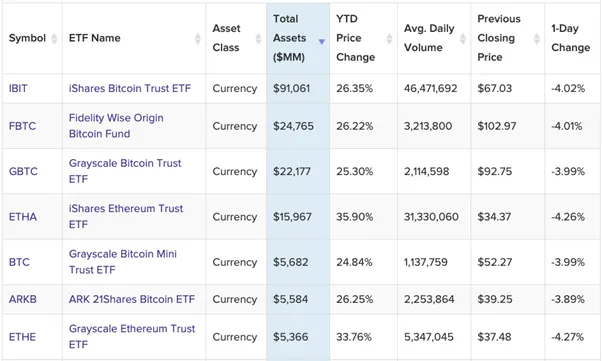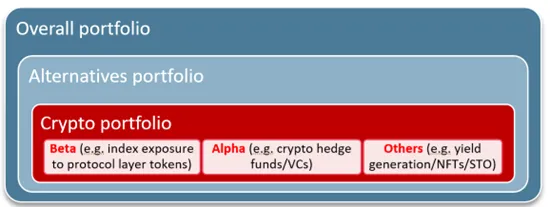Table of Contents
Cryptocurrencies, once a fringe asset class born from the ethos of decentralization, are increasingly becoming a focal point for institutional investors. As blockchain technology evolves and regulatory clarity improves, traditional financial players are no longer standing on the sidelines. The entry of institutional capital marks a pivotal shift—one that blurs the boundaries between decentralized finance and traditional systems. In this second article of our series on Digital Assets, we explore how institutional investors, family offices, and UHNWIs are shaping the trajectory of digital assets and what this means for the broader investment landscape.
Institutionalization of Crypto in the Investor Space
Institutional investors are now pioneering crypto investments. Initially founded on the principle of decentralization, cryptocurrencies, and blockchain technologies have gained attention for their efficiency and the reduced role of centralized authorities. However, as mass market adoption grows, institutional players recognize the need for collaboration between decentralized finance and traditional finance. A moderate dose of “centralization” may give Institutional players the comfort needed to increase adoption.
The Next Boom in Crypto: Institutional Money
One of the significant trends in the crypto space is the anticipated inflow of institutional capital. The total market capitalization of the cryptocurrency space fluctuates around the US$ 4T range(as of last 30 days, as of August 1, 2025), a small fraction compared to the S&P 500's market capitalization of US$52T (as of August 2025). Institutional involvement can propel crypto assets into mainstream financial portfolios.

Top Crypto ETFs
In recent years, several ETFs focused on crypto assets have emerged, providing institutional and retail investors with more accessible means of gaining exposure to this asset class. The leading ETFs, as of August 15, 2025, include:
• iShares Bitcoin Trust ETF – US$ 91.06B
• Fidelity Wise Origin Bitcoin Fund- US$ 24.77B
• Grayscale Bitcoin Trust – US$ 22.18B

These products indicate a growing demand for regulated investment vehicles in the digital asset space.
Family Offices and UHNWIs: Approaches to Crypto Investment
In recent years, Family Offices and Ultra-High-Net-Worth Individuals (UHNWI) have shown a growing interest in crypto assets, dedicating considerable resources to exploring these opportunities and conducting thorough due diligence before making allocations. The degree of institutionalization within these investors' structures significantly influences their investment strategies and risk-return profiles.
Family Offices, which tend to be more structured and formalized, often follow established frameworks for risk management and investment criteria. Their crypto allocations are generally focused on market-neutral strategies, aimed at generating yield with fixed returns. These investments prioritize principal protection while striving for consistent, risk-adjusted outcomes. As a result, Family Offices tend to avoid high-risk exposures, opting instead for investments that offer stable returns while mitigating volatility in the crypto markets.

On the other hand, UHNWIs typically exhibit a higher risk appetite when it comes to crypto allocations. These individuals are more comfortable dedicating a smaller portion of their portfolios to digital assets in pursuit of higher returns, betting on the potential growth of the crypto and digital asset megatrend. Unlike the more conservative, institutionalized approach of Family Offices, UHNWIs tend to seek beta exposure, leveraging the growth potential of the market. Their investment decisions are often based on trust and personal relationships with crypto counterparties, rather than strict institutional guidelines.

This contrast underscores the varying strategies in the crypto space between Family Offices, which prioritize stability, and UHNWIs, who are more inclined to pursue higher-risk, high-reward opportunities.
The shift from physical to digital ownership is also shaping the way consumers engage with assets. Digital assets, particularly NFTs and virtual goods have seen rising demand as consumers become more comfortable with immaterial ownership. An industry report published in May 2023 suggests that 32% of family offices currently hold investments in digital assets. Family offices and ultra-high-net-worth individuals (UHNWIs) are actively exploring opportunities in this space.
Evaluating Counterparty Risk in the Crypto Space and Why It Matters?
In the fast-paced world of crypto assets, counterparty risk plays a crucial role. Unlike traditional finance, where counterparties and investments remain relatively stable, the crypto industry evolves at an accelerated pace. As a result, the counterparties you deal with and the types of allocations you engage in can shift rapidly. This creates a continuous need for thorough counterparty evaluation, risk management, and monitoring of regulatory changes.
Lighthouse Canton plays a key role in bridging this gap by bringing rigorous wealth and asset management standards to the digital asset space. A core aspect of Lighthouse Canton’s approach is securing segregated custody of client crypto assets. By working only with trusted, regulated counterparties, LC ensures that assets are managed with institutional-grade oversight.
A primary concern for Lighthouse Canton is ensuring that clients achieve segregated custody of their crypto assets. This involves working exclusively with trusted and regulated counterparties within the industry to mitigate the risk of asset mismanagement. With its wealth management background, Lighthouse Canton ensures the highest level of protection for client assets, applying private banking-level security to the digital asset space.
Furthermore, when working with trading counterparties, Lighthouse Canton conducts a rigorous due diligence process. This reduces the risk of agency problems and helps prevent the rehypothecation of assets; where assets could be used for riskier, on-balance sheet investments by the counterparty. A full pass-through analysis on Asset Managers and their counterparties also has to be done; exposures in the Crypto space tend to be concentrated due to the limited counterparty choices for regulated players. By maintaining strict evaluation processes, Lighthouse Canton helps clients navigate the ever-evolving crypto space with greater confidence and security.














%20(29).jpg)
%20(27).jpg)
.jpg)
.png)